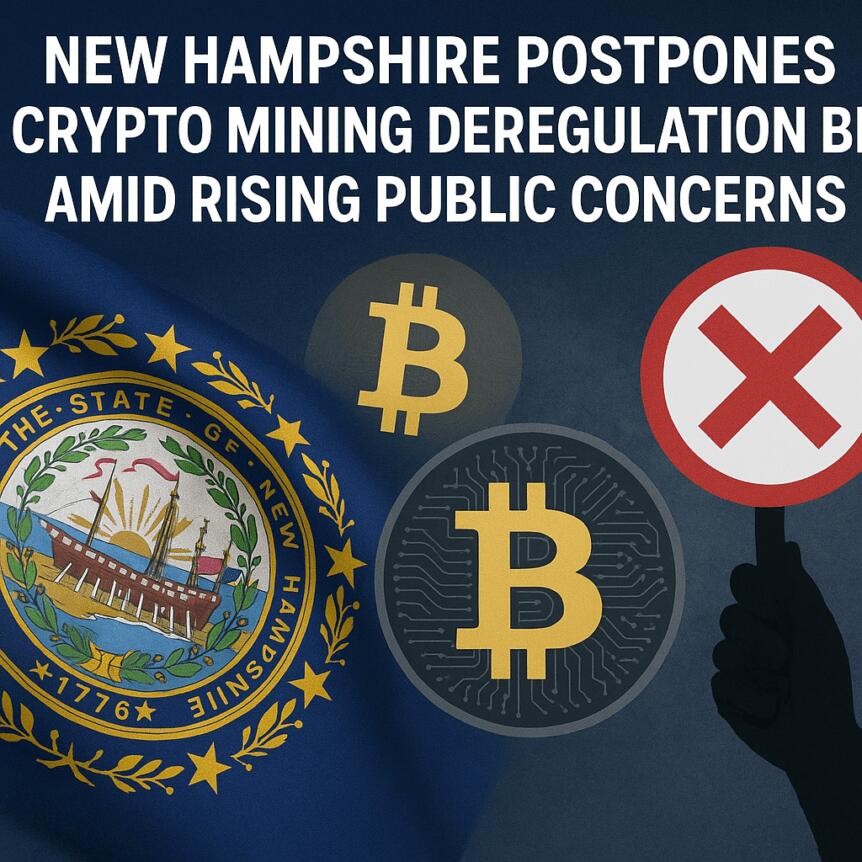The debate over cryptocurrency mining regulations in New Hampshire reached a new stage this week, as the Senate Commerce Committee struggled to find consensus on a bill meant to ease restrictions and promote growth in the state’s crypto industry. This development highlights ongoing tensions between supporting crypto innovation and addressing concerns over energy consumption and environmental impacts in the United States.
- The Senate Commerce Committee in New Hampshire split 4-2 on moving forward with a crypto mining deregulation bill, opting for further review.
- House Bill 639 aims to prevent local restrictions on crypto mining and safeguard the rights of miners, while establishing a blockchain dispute court within the state.
- The bill, sponsored by Republican Rep. Keith Ammon, may return to the full Senate for consideration in 2026 after further committee study.
- The proposal has garnered significant public attention, with one senator receiving an unprecedented volume of emails supporting the measure.
- Across the U.S., regulatory efforts around crypto mining are evolving, amid a general trend toward renewable energy adoption and tailored taxation policies.
Crypto mining in New Hampshire and the US
Crypto mining involves harnessing computing power to verify transactions and secure proof-of-work blockchains such as Bitcoin, rewarding miners with newly minted coins.
While the industry has been criticized for its substantial energy consumption and environmental footprint, recent studies suggest significant progress. According to a report by the MiCA Crypto Alliance and Nodiens, coal’s share in Bitcoin mining has declined dramatically from 63% in 2011 to 20% in 2024, with renewable energy use rising by an average of 5.8% annually over the same period.
Despite these advancements, some U.S. states are contemplating regulations to further offset energy impacts. On Oct. 2, New York State Senator Liz Krueger proposed a tiered excise tax on energy used by crypto mining operations. The bill would exempt miners consuming up to 2.25 million kWh annually, with higher usage attracting a 2-cent per kWh tax, potentially incentivizing energy efficiency and sustainability in the sector.
As the crypto industry continues to grow and adapt to new regulatory environments, balancing technological innovation with environmental considerations remains a key challenge for policymakers at both state and federal levels. The evolution of crypto regulation, particularly around mining, will play a pivotal role in shaping the future of blockchain-based assets, NFTs, and DeFi markets across the U.S.







